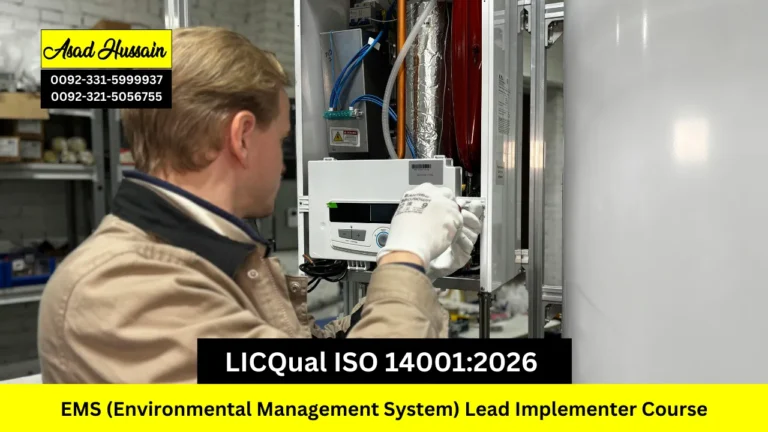In an increasingly unpredictable world, the need for skilled disaster management professionals has never been greater. Natural disasters, pandemics, and man-made crises can strike at any moment, causing widespread devastation and disruption. The Level 3 International Diploma in Disaster Management equips individuals with the essential knowledge and skills to effectively respond to and manage disasters, mitigating their impact and helping communities recover more swiftly.
Disaster management is a multi-faceted field that involves preparing for, responding to, and recovering from disasters. It encompasses a wide range of activities, including risk assessment, emergency planning, resource coordination, and post-disaster recovery efforts. Effective disaster management not only saves lives but also minimizes economic losses and enhances community resilience.
The Level 3 International Diploma in Disaster Management provides a comprehensive foundation in disaster management principles and practices. This program is designed for individuals seeking to enter the field, as well as professionals looking to enhance their disaster response capabilities.
The Level 3 International Diploma in Disaster Management is a vital stepping stone for anyone passionate about making a difference in times of crisis. By equipping individuals with the skills and knowledge to effectively manage disasters, this program plays a crucial role in building safer, more resilient communities worldwide. Whether you’re looking to start a career in disaster management or enhance your existing capabilities, this diploma offers the expertise needed to navigate the complexities of disaster response and recovery with confidence.
Program Highlights
Mandatory Units
- Unit 1. Disaster Management: A Helicopter View.
- Unit 2. Disaster Mitigation.
- Unit 3. Disaster Preparedness.
- Unit 4. Disasters Response.
- Unit 5. Disaster Recovery.
- Unit 6. Information Technology in Disaster Management.
- Minimum Education.
- English Language Proficiency.
- Relevant Experience (Optional but Beneficial).
- Statement of Purpose.
- Letters of Recommendation.
- Applicants must be at least 18 years old at the time of enrollment
Disaster Management: A Helicopter View
- Understand the Scope: Gain a comprehensive understanding of disaster management concepts, including the different types of disasters and their impacts on communities.
- Historical Context: Analyze historical case studies to understand the evolution of disaster management practices.
- Key Principles: Identify and explain the core principles of disaster management and their application in various contexts.
- Frameworks and Models: Familiarize with the global and local frameworks and models used in disaster management.
Disaster Mitigation
- Risk Assessment: Develop skills to identify and assess potential risks and vulnerabilities within different settings.
- Mitigation Strategies: Design and implement effective strategies to reduce or eliminate risks associated with specific disasters.
- Policy and Planning: Understand the role of policies and planning in disaster mitigation and how to apply them in real-world scenarios.
- Case Studies: Analyze case studies to evaluate the success of different mitigation measures.
Disaster Preparedness
- Emergency Planning: Learn how to create comprehensive emergency preparedness plans tailored to different types of disasters.
- Resource Management: Understand the importance of resource allocation and management in preparedness efforts.
- Training and Drills: Develop skills to conduct effective training sessions and drills to prepare communities and organizations for disasters.
- Public Awareness: Design strategies to enhance public awareness and engagement in disaster preparedness.
Disasters Response
- Incident Management: Master the principles of incident command systems and coordination during disaster response.
- Operational Skills: Acquire practical skills in managing resources, communication, and logistics during emergencies.
- Decision-Making: Develop decision-making skills under pressure and learn how to prioritize actions during a disaster response.
- Coordination: Understand how to coordinate with various agencies and stakeholders involved in disaster response.
Disaster Recovery
- Recovery Planning: Create and implement effective recovery plans to restore affected areas and communities.
- Assessment and Evaluation: Learn how to assess the impact of disasters and evaluate the effectiveness of recovery efforts.
- Support Systems: Develop strategies to provide psychosocial support and assistance to affected populations.
- Sustainability: Promote long-term recovery and resilience by integrating sustainability principles into recovery efforts.
Information Technology in Disaster Management
- IT Tools and Systems: Familiarize with various information technology tools and systems used in disaster management.
- Data Management: Learn how to collect, analyze, and manage data to support disaster response and recovery efforts.
- Communication Systems: Understand the role of communication technologies in coordinating disaster management activities.
- Innovative Solutions: Explore innovative IT solutions and technologies that enhance disaster preparedness, response, and recovery.
The Level 3 International Diploma in Disaster Management is tailored for individuals seeking to build a career in disaster management or enhance their current expertise in the field. This course is ideal for aspiring professionals, including those working in emergency services, humanitarian aid, and related sectors, who wish to deepen their understanding of disaster response and recovery processes. It is also suitable for current practitioners looking to update their skills with international best practices and effective management strategies. By providing a comprehensive foundation in disaster management principles, this course equips participants with the knowledge and skills necessary to address complex emergency situations and contribute to effective disaster preparedness and response.







